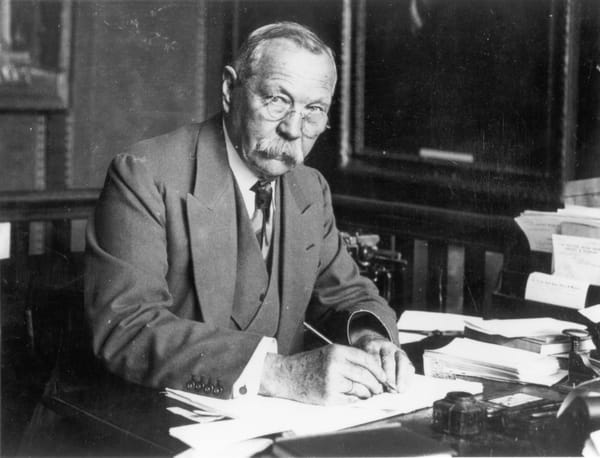Note 49: Another week, another rocket stock
Looking to the future instead of dwelling on the present.
Welcome back to what should be a nice return to form for Notes from the Void.
The hiatus of the last several weeks has been the result of a busy summer full of changes. I have a whole new Chicago Cubs team since I last wrote about them, and it’s been tricky going from a perennial contender mindset to one of watching younger players struggle to rebuild on the foundation that’s left. I’ve been working from home these past couple of weeks - one part of that is not confronting the frustration I have that Chicago’s back into indoor mask mandates and other avoidable mitigation measures, and a second part of me working through my HOA President backlog to knock out the last few projects before summer’s gone and it’s too cold to do much else.
Over the past couple of weeks, my sentiment towards the (avoidable) COVID crisis and the Biden administration has changed a bit, as I’ve hit the Zero Tolerance zone of dealing with COVID Truthers, and started thinking that we need new national leadership if the current leadership doesn’t do everything in its power to extract American allies and citizens from Taliban Afghanistan, given that surrendering that nation to a medieval Islamic cult wasn’t something that had to happen. Joe Biden made that choice.
I’ve probably been rage-posting on Facebook more than is healthy or necessary, and I finally ran into one of their moderation robots when I tried to repost the following piece from Twitter to my page there:
Idea:
— Radley Balko (@radleybalko) 8:07 PM ∙ Aug 23, 2021
- Set aside ~15 million Pfizer vaccines
- Give them a weird new name like Hydroxyiverzinc
- Send to doctors, veterinarians, acupuncturists, etc.
- Viral marketing campaign calling Hydroxyiverzinc “the secret COVID cure the government doesn’t what you to know about!”
It was banned almost immediately, which makes me think that it fell to an algorithmic moderator and not a human one, which is actually a heartening sign to me. For if Skynet does end up conquering humanity, we won’t have to deal with the automated space robot army mocking us, because it will lack the sense of humor to do so effectively.
L.O.L.
Just when I thought I was out, they pulled me back in…
Over the past week, I was looking forward to talking about my exit from the SPAC stocks sector, as Rocket Lab USA became a real public company today. Astra converted a couple of months ago, and Relativity Space hasn’t made their plans clear yet. I was going to be done with SPACs and planning to enjoy my plain common shares in two rocket companies.
Then on Monday, Virgin Orbit (the one that launches satellites, not people, into space) announced that they were going the SPAC route, and since they fell within the bounds of my investment thesis, I had to pick up some shares to get some skin in the game. So, now I own my third rocket SPAC, and will be watching this one go through its maturation process probably until around the end of the year.
Before I get too deep into how all of this fits together on a long-term basis, let me first - for the sake of full disclosure - lay out how well those SPAC investments have worked out for me so far. (I don’t want to give anyone the impression that this is quick, easy, or sure money.)
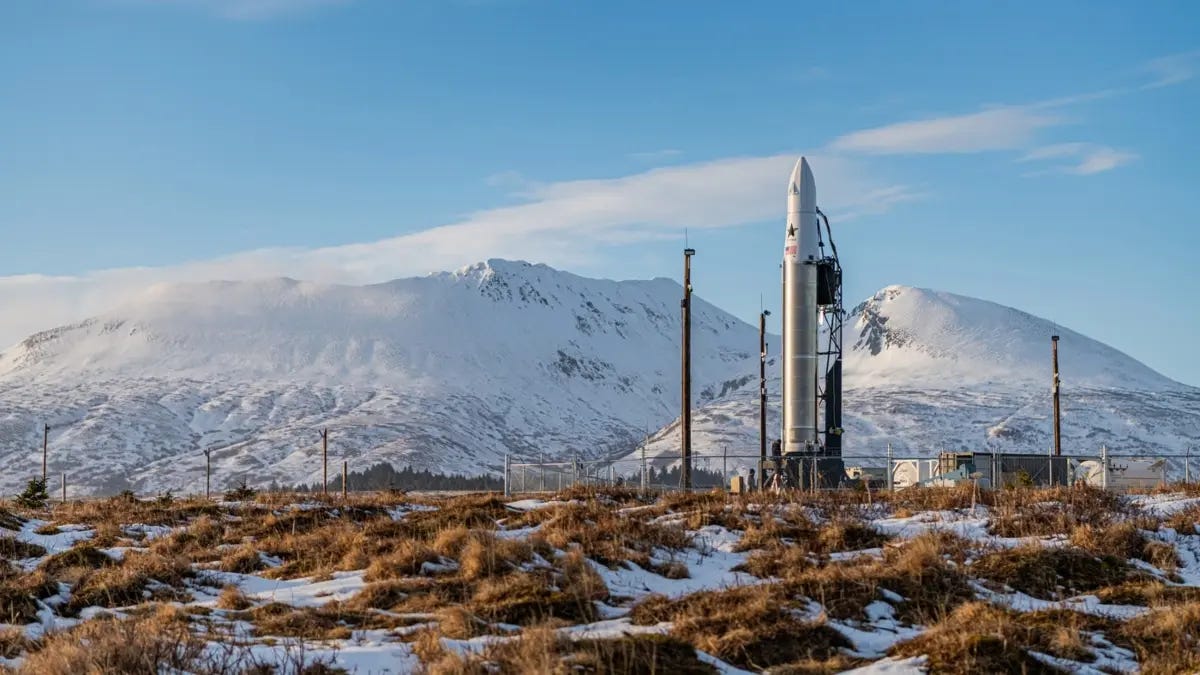
When I first got into Astra, I purchased around the height of the SPAC excitement and ended up becoming the counter-party to another’s profit-taking. I bought my first tranche of shares around $17 (which included a 1/3rd warrant each) and proceeded to see those shares sink as low as $8 per share as the SPAC enthusiasm waned. I purchased a second tranche around $9 a couple months later to do some bargain hunting and to have some shares with a lower starting point to offset the losses I’d taken thus far when the stock started to rise. At the time of writing, I’m down about 15% in losses on Astra.
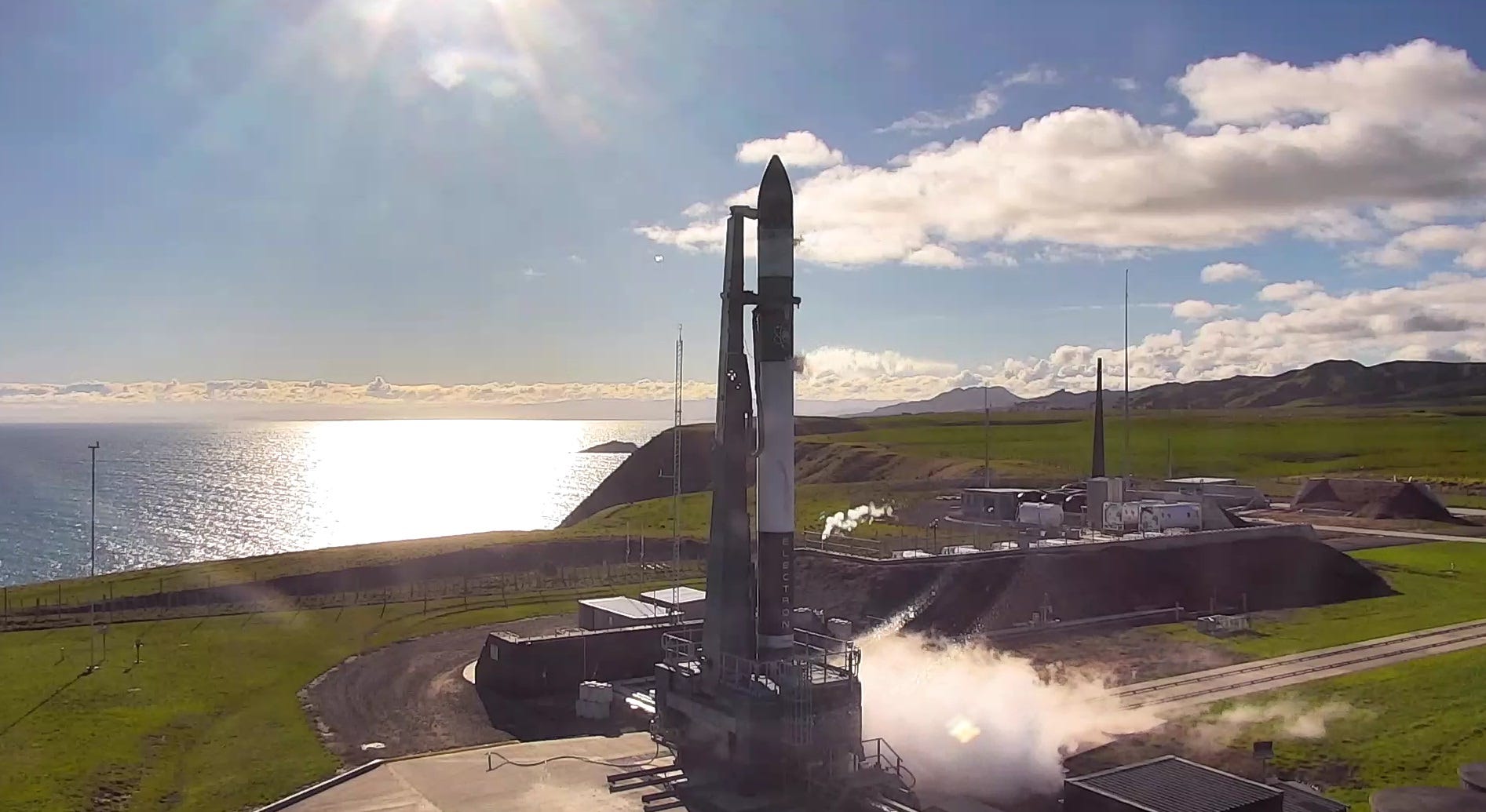
After Astra, I picked up shares of the Rocket Lab USA SPAC in two similarly sized tranches for an average price paid of $10.91 per share. I was smarter this time about avoiding the enthusiasm peaks and purchasing closer to the SPAC’s original offering price. At the moment, I’m also down about 4.5% as we seem to be in a sell on the news phase of its first day as a real stock. (It was in the money for me most of yesterday.)
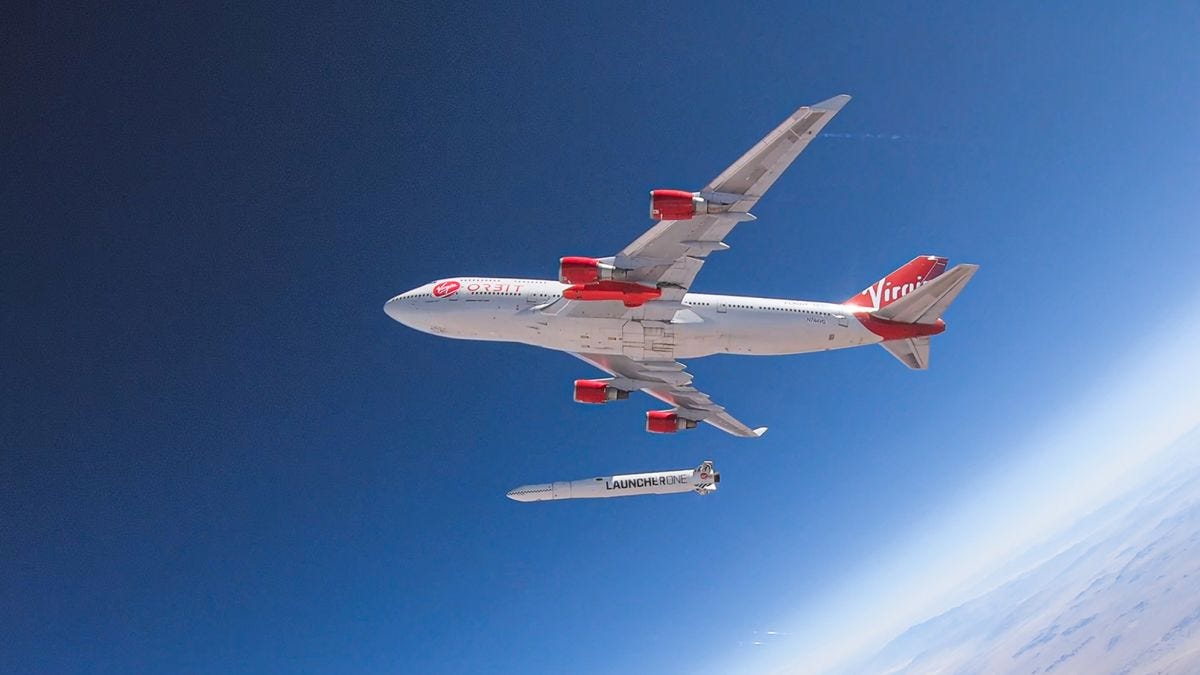
In my 48 hours of holding Virgin Orbit’s SPAC, it’s hovered around the price I purchased it, so I’ll be up or down a couple of bucks throughout the day. No big movement either way yet.
Given that I’m down across my rocket stocks, I did pay a premium in order to grab shares as early as I can. That said, these are 10 to 40 year plays for me, and I expect the upside to completely dwarf the losses I’ve incurred over the past couple of months dabbling in this part of the market.
When it comes to investing (and a lot of other things in life), I don’t take a chance on something unless I can tell a story about how I expect that investment to make me money in the future. If I can’t find a company to tell a compelling story about, my cash goes into broad-market index funds instead. I don’t have one story for each of these rocket companies, but one story for all of them.
My purchases are motivated by the belief that mankind will have begin exploiting space in order to meaningfully and realistically solve problems plaguing us on Earth. We have no hope of solving the climate crisis until we definitively solve our energy crisis. For as small as the world feels today, it’s only going to feel smaller until we have a new frontier to populate and explore. (Think of this as a version of the Turner thesis for the cosmos.) Imagine addressing the Western water problem by delivering a fragment of a small water-based comet to melt in Lake Mead. There’s quite a bit where I disagree with Jeff Bezos, but I think he’s spot-on in his desire to move heavy industries and polluting industries out of Earth’s biosphere and into space where we’ll find that we can build more, build BIGGER, and build faster than we can constrained within a gravity well.
In my story, our relationship to space is a lot like the relationship between Europe and the Americas during the few decades after Spain began the colonization of the Western Hemisphere. We can get to where we want in the new frontier, but it’s still an expedition each time. As history progressed, trips and interactions between the two continents became more routine and less expeditionary as shipping lanes, merchant fleets, and other infrastructure were established that enabled planners and investors to think more about what they were going to do in the new areas, than how they were getting there. We saw a similar pattern emerge as Turner’s frontier was domesticated and and traveling from the Atlantic to the Pacific ceased being a trip down the Oregon Trail (“you have died of dysentery”) and became scheduled train routes, Interstate highways, and airline flight paths.
I believe that Bezos has it right and we’ll see ever-increasing traffic to space - first as we populate the sky with satellites to serve Earth, and eventually getting to the point where we ship our energy production and automated factories into orbit, and we start treating Earth as a garden where people are welcome to enjoy it for its natural endowments, while we do the intense and dirty work where it’s not going to cause a problem. And to get to that point, we’re going to need a transportation system that gets us from Point A (standing on the surface of Earth) to Point B (in orbit largely free of the gravity well).
Earth will be zoned residential and light industry. Then move all pollution and nasty stuff off Earth.
— Everyday Astronaut (@Erdayastronaut) 8:25 PM ∙ May 9, 2019
Each of the companies I mentioned above (Astra, Rocket Lab, Virgin Orbital) are different bets that solve different parts of the transportation problem. Rocket Lab is second-only to SpaceX when it comes to putting items into orbit. Their current technology and ambition to compete with SpaceX in the larger rocket space is not unlike the giant shipping boats we use to trade massive quantities of materials across oceans. Astra is working on smaller rockets that can be fired from portable land-based launchers. They won’t send as much payload into orbit, but they also avoid the logistical complications of getting a bigger rocket ready to launch, as well designing the launch schedule around the weather. Once things are up and running, they should be able to launch smaller cargoes on quicker notice. Virgin Orbital fits into this picture in that their plane-based approach is even more flexible than Astra’s land-based system. All they need are conditions suitable for a 747 to take off, and they can have something in orbit as quickly as you can prepare the rocket.
Right now, the attention is rightfully being paid to SpaceX and its Starship rocket, which will likely be the main method for bootstrapping our industrial presence in space. It’s probably the best value per kilogram of material to launch, and it’s very likely that Rocket Lab doesn’t catch up to their first-mover advantage. However, once we put the big infrastructure up into space and get humans working there, time-to-delivery will start to take on additional importance to fill the gaps left off the cargo manifest of SpaceX’s Starship sitting on its Super Heavy booster. That’s where these companies and their various ways of getting stuff into orbit start to shine.
Let’s say that three decades in the future, there’s a small COVID outbreak in an orbiting energy station that’s beaming concentrated solar energy to a collector on Earth. The mission planners didn’t anticipate a defeated virus showing up there and the medical bay is ill-equipped to deal with the infected, as well as vaccinate anyone who still hasn’t contracted the virus. (I’m imagining this energy station being manned with the equivalent population of a small village, and it being orders of magnitude cheaper to ship a vaccine into space, than replace humans sent back down to Earth to get a shot.) You won’t schedule a Starship to deliver a couple hundred kilograms of medical supplies - you’ll hire Virgin Orbit to to get it up there ASAP. Or imagine that a terrestrial engineer wants some feedback on an iteration of a new part for an automated factory building reusable batteries in space. He’d hire Astra to get the part up there quicker, or engage Rocket Lab if the SpaceX docket is filled up as it’s too busy moving materials into orbit for the manned Jupiter moon mission.
I don’t see these three companies as competitors as much as I see them as complements. As each are successful in getting more people and stuff into space, that’s going to create more sources of demand for a variety of space-focused delivery services. SpaceX may launch the bulk of Richard Branson’s orbiting Virgin Hotel into a stable orbit, but the hotel’s chef has fresh produce and seafood flown up weekly on a Virgin Orbit rocket, as Virgin Galactic space planes deliver guests to the exclusive space resort. Each has its own niche in the space transportation ecosystem, and each has an opportunity to excel at its own specialty. Just in the same way that our Earth-bound transportation system varies from super-massive cargo ships to bicycle messengers, I expect space will be similar once we get past the point where we’re proving that the rockets work, and start focusing more on what interesting things that we can DO up there.
This bet may not pay off, or it may not pay off with the players I’ve chosen. It’s also possible that this is a bet that I’m making too early. I also don’t anticipate these three companies making it through to the endgame in their present form. While one or all of them may not make it over the technical hurdles that allow them to be ongoing concerns, I expect it’s more likely that as transporting cargo to space becomes less novel and more routine, we’ll start to see some consolidation as these different launch companies merge, or are absorbed to become alternative offerings in a much larger, full-service launch company. (The race is to get big enough to be the bigger fish eating the smaller fish.) It’s also possible that that their respective first-mover advantages don’t last or a competitor re-invents their core competency, but absent some major fustercluck (my new favorite word learned from the current Afghanistan fiasco), acquisitions and mergers will be preferred, if not for the technology, then for the client relationships and intellectual property.
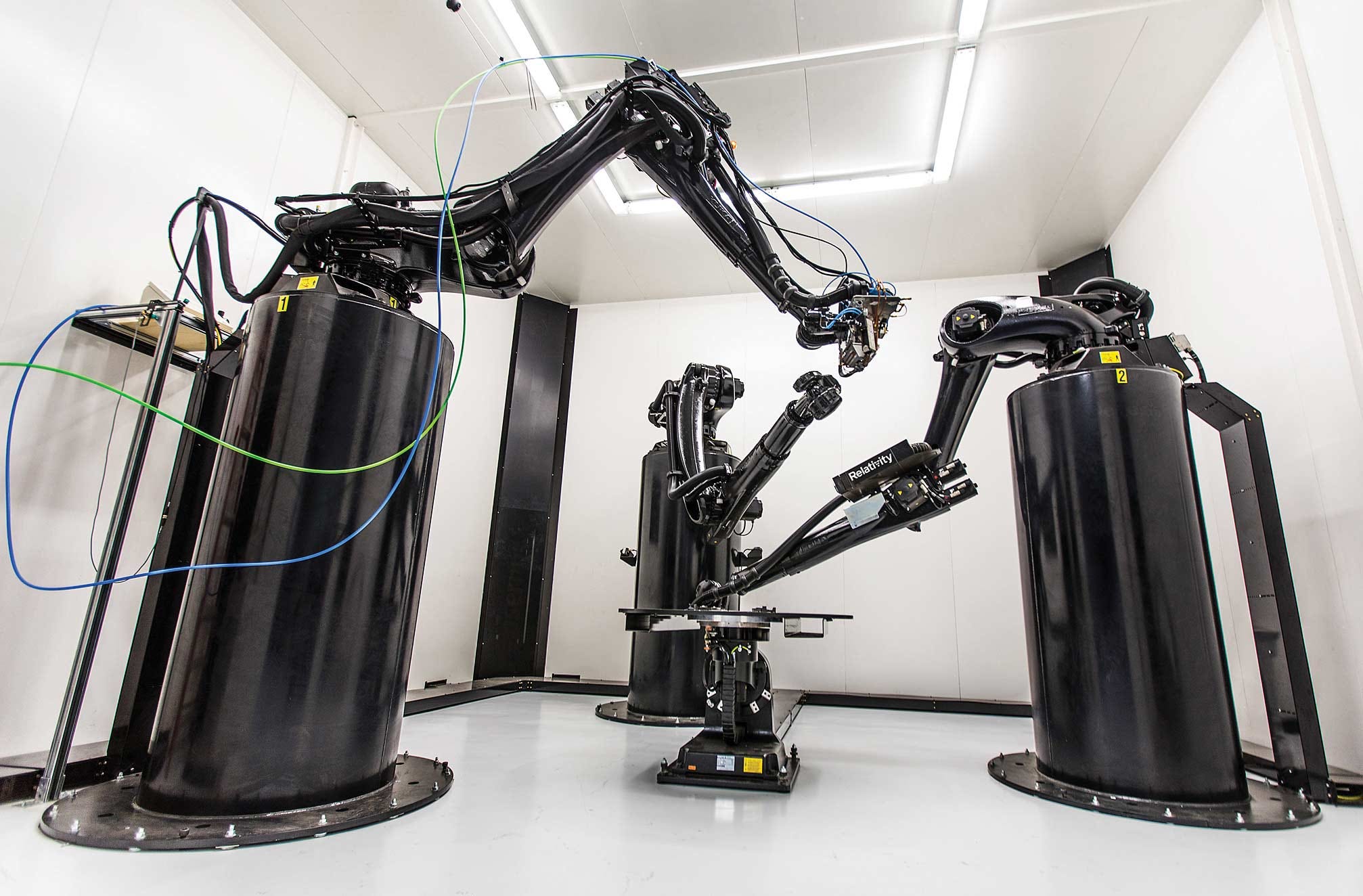
Now that Virgin Orbit is sitting in my portfolio, who else am I waiting on? SpaceX is the obvious missing piece, but I’m also keeping my eye on a company called Relativity Space. Unlike the companies mentioned earlier that largely employ traditional factory models to construct their rockets, Relativity Space is banking on automated approaches that employ 3-D printing methods to build space-worthy rockets. While they haven’t launched anything into orbit yet, their technology looks promising. And while they tout their short-term value as being able to build rockets on-demand for varying mission profiles, I’m more excited about their manufacturing technology and processes, which - should they pan out - will be the keystone in the next phase of the space economy - the factories where stuff is built. Transporting humans and their supporting biospheres will not likely be cheap in the future, so to what extent Relativity can demonstrate the feasibility of production in space, autonomous or remotely-supervised systems will have to be a big part of that equation. As soon as I can buy their shares, I will.
So, that’s my space investment thesis in a nutshell. I may have watched too much Trek as a kiddo, but if I can be part of an early history that leads us to building the Utopia Planitia Fleet Yards, I can’t wait to take my place. Let’s just leave the humor-less rebelling synths out of it.
Book report
Smiley's People by John le Carré (★★★★★): Once upon a time, spy novels were less like Michael Bay and Jerry Bruckheimer films, and more like the well-constructed whodunit novels beloved by mystery fans around the world. Smiley’s People is one such novel and it’s a very slow and very deliberate burn, as George Smiley attempts to defeat his nemesis Karla in one last bout before it’s too late. It’s a well-constructed plot that goes through its various steps to arrive at the inevitable conclusion to the conflict introduced in Tinker, Tailor, Soldier, Spy.
In terms of my overall reading goal, I am now five books behind schedule (58 of 101). I need to quit being distracted by the news and get back to my backlog!
Interesting reads
Homegrown app helping Kabul residents steer clear of danger (Ars Technica)
The Most Famous Paradox in Physics Nears Its End (Quanta Magazine)
This Physicist Discovered an Escape From Hawking’s Black Hole Paradox (Quanta Magazine)
That’s it for this week, CMDRs. I’m hopping back on a sailboat this evening to get some practice in before this weekend’s Chicago Leukemia Cup Regatta. If you’d like to help us raise funds, you can donate here on behalf of the Valhalla crew.



